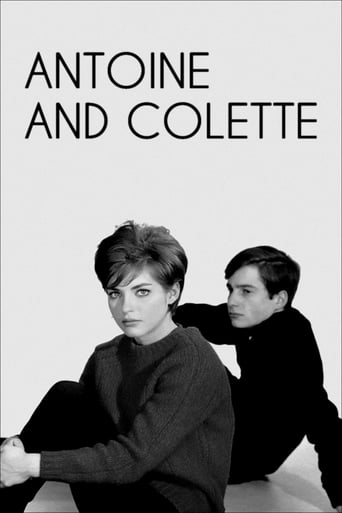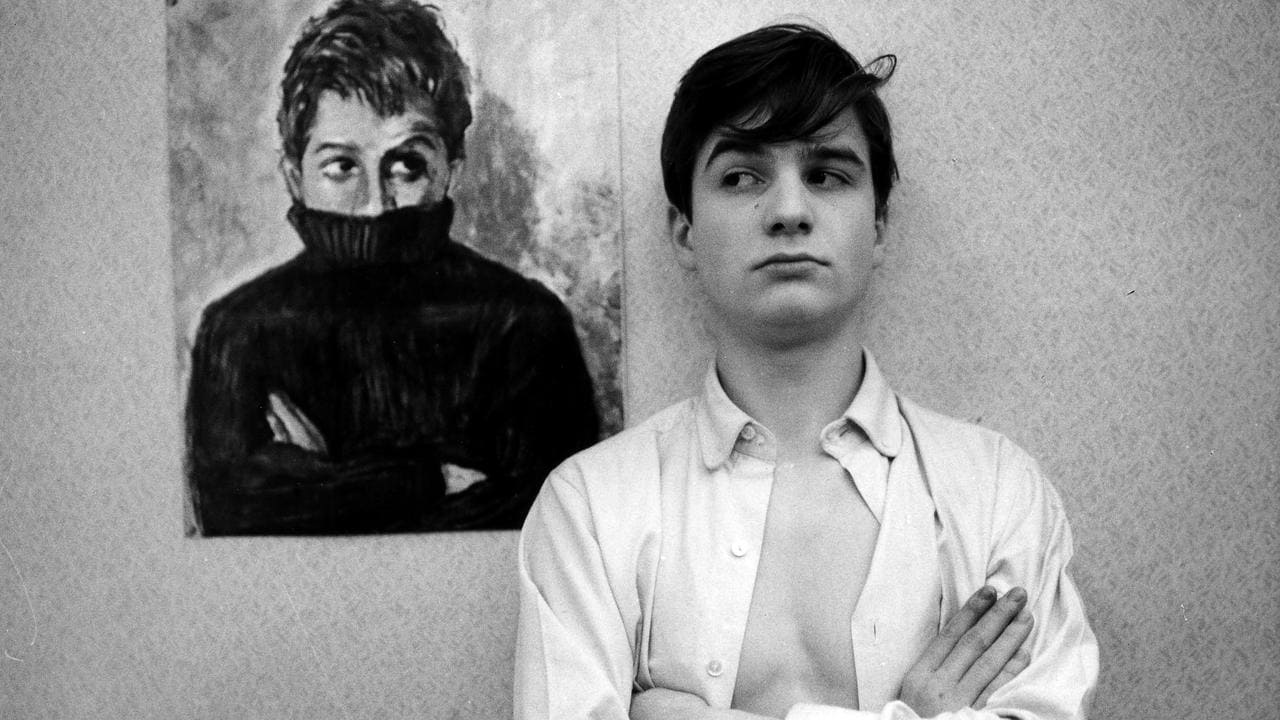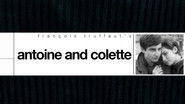Michael_Elliott
Antoine and Colette (1962)*** 1/2 (out of 4) This 30-minute short from Francois Truffaut was originally a part of the anthology film LOVE AT TWENTY but it got its own release since many considered it the stand out entry. It also serves as a sequel to THE 400 BLOWS as Antoine Doinel (Jean-Pierre Leaud) is now out of trouble, living and working and soon he finds himself falling for a woman named Colette (Marie-France Pisier). At first Antoine believes that the two are starting a good relationship but before long it's clear that the woman has a different mind set. I guess the simplest thing to say is that the ladies in France aren't much different than the ones in America when it comes to confusing a young man and breaking his heart. I really thought this was an extremely good film and a worthy follow-up to THE 400 BLOWS, which by many, not myself, think is the director's masterpiece. I really liked how Truffaut didn't just give us the same type of story and instead of the tense drama he treated us to quite a few sweet scenes that have a touch of bittersweetness to them. I think most adults watching this are going to realize what's going on with the "relationship" but the film also takes you back to the days of youth when being naive was just part of the game. Both Leaud and Pisier are excellent together and the two of them really shine in regards to their performances. The cinematography is excellent as you'd expect and there's no doubt that Truffaut handles the material with care.
Horst in Translation (filmreviews@web.de)
Isn't it the purest and most beautiful thing ever? In this short film, François Truffaut takes us into the lives of Antoine and Colette and shows us how they experience their first love. Or do they really? He works in a record store and sees her during a concert. Not much later, the two get closer and spend their free time together. She's still doing her Bac at that point and is impressed by his independence. So are her parents and his dad approves particularly seeing himself in the young man when he was that age. He writes her a love letter, she is flattered and the two spend the night at the movies where he's finally ready to make the decisive move and kiss her. Could it all be true?It's French and it's black and white. That should actually be enough information already for you to decide if you like it. It's not among my favorite short films, but I thought it still made a good watch with a quite realistic ending, even it was a bit of a bummer for my romantic self. It's pretty charming and what I probably liked most about it was how innocent its tone was from start to finish with both lead actors being under 18 when Truffaut shot the film. Pisier's untimely death makes me a bit sad, but I'm glad she left us this and many other films as a heritage. Recommended.
rjyelverton
This follow-up to "The 400 Blows" continues Doinel's story and necessarily modifies the closing moments of Truffaut's debut. When we last saw Doinel he was alone and trapped by his situation. He stares blankly at the screen and we are given the impression that this boy is lost, maybe eternally. Turns out he's actually okay if not very happy. The very act of continuing the story undermines the full stop and despair of "Blows." Depending on your reaction to the conclusion of "Blows," this might be a blessing and a relief. It's best, as when approaching most sequels, to let the first part stand on its own and try to approach additional installments as individual films."Antoine and Colette" is approximately thirty minutes long and was initially released as part of the anthology film "Love at 20." (Criterion has packaged "The 400 Blows" and "Antoine and Colette" together as part of their Adventures of Antoine of Doniel boxed set.) The film finds Doinel at 17 years old living in a tiny apartment and working in an assembly line at the Philips record company. The film includes a clumsily inserted flashback from the first installment and demonstrates that Doinel has continued his friendship with his more privileged classmate Rene.While attending a concert with Rene, Antoine becomes fixated on Colette and begins a labored attempt at wooing her. She is kind to Doinel, but, as a narrator informs us, considers Antoine a friend. Antoine, however, is blinded by persistent romantic longing that the series will continue to reference. He fuels his romantic outlook with a steady diet of literature and music. While he obsesses over his nascent romance, Colette goes about dating young men with no intention of ever entangling herself with Doinel. As one prone to similar romantic obtuseness as a young man, I found this chapter of the Doinel story both humorous and a little uncomfortable.This film also introduces a trend that will recur in "Stolen Kisses." The orphaned Antoine, even into adulthood, becomes the surrogate child of his love interest's parents. The parents, seeing Antoine's need, feed the young man, offer him company, meals and kindness. It's touching, but awkward, as the parents show him more affection than do the young women Antoine is pursuing.This sequel to "The 400 Blows" is worth viewing more for the work of Jean Pierre-Leaud than for Truffaut's direction. (There is, however, a crackling sequence in "Antoine and Colette" when Antoine keeps trying to slyly ogle Colette and her legs while she pretends not to notice.) Leaud's work in "Blows" is raw and and austere, but in this installment and "Stolen Kisses," Leaud shifts towards a more endearing and hapless comic figure. He is a skilled, unassuming comic, believable and deliciously awkward. He provides enough reason to keep viewers returning to subsequent chapters. With "Antoine and Colette" and "Stolen Kisses," the tone shifts from realism toward farce grounded in humanity.
jzappa
Truffaut's short film, made to pacify the curiosity eager fans of The 400 Blows as to the continuation of the lives of its disadvantaged characters, carries the same dry lack of emotion and still distances itself from us despite all its observation of and sympathy for the growing pains of Antoine Doinel. Though it is perhaps good that there is a distance kept because of its logical understanding of Antoine's experiences which leave him confused and painfully humbled.Jean-Pierre Leaud, who played Antoine in The 400 Blows, experiences the seemingly apocalyptic feeling of rejection, as Collette, the fixed object of his desire, has no interest in him regardless of all his efforts to entice her with frequent stopovers, invitations to concerts, and other woos. He even follows his self-assured friend's approach of writing letters, but with what appears to be no avail. Just as with The 400 Blows, we are left to ponder this perplexing phase in this character's life, causing us to reflect on our own painful memories of growing pains and the humility and self-doubt that accompanies it.


 AD
AD

